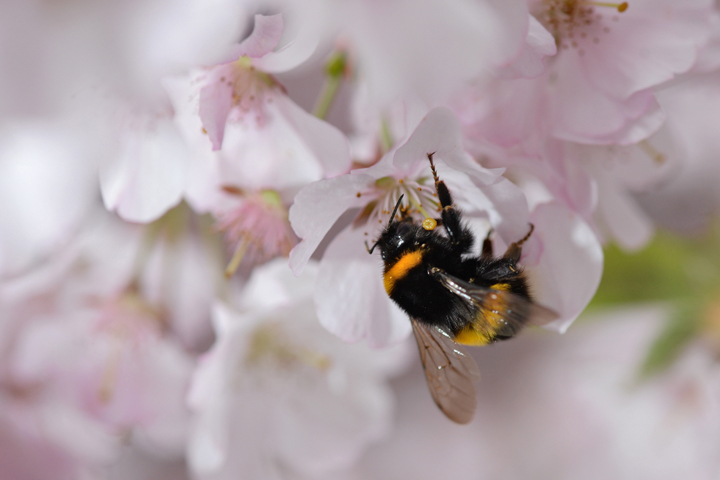Low-level pesticide use adversely affects the pollination of apple trees by bumblebees, a new study has found.

The study, published in Tuesday’s edition of the journal Nature, exposed 24 bumblebee colonies to the widely used neonicotinoid (NNI) pesticide thiamethoxam, using an amount that was consistent with that found in field settings.
READ MORE: Silence of the bees: ‘It has to stop. It just has to stop.’
What they found was that the blossoms pollinated by the exposed bumblebees produced apples with 36 per cent fewer seeds. This, they concluded, illustrated reduced quality as well as reduced pollination by the bees.
“Although pesticides are typically not encountered at lethal levels in the field, there is growing evidence indicating that exposure to field-realistic levels can have sublethal effects on bees, affecting their foraging behaviour, homing ability, and reproductive success,” the study reads.
For the past few years, there has been growing concern about the wide use of NNIs and their effects on bees.
In 2013, the European Union put a temporary ban on NNIs. In 2015, Ontario announced plans to reduce the use of NNIs by 80 per cent by 2017.
READ MORE: Ontario announces new rules restricting pesticides linked to bee deaths
“Although individual bees exposed to pesticides visited more flowers, overall their colonies provided lower floral visitation rates and collected less pollen,” Raine said. “If they are collecting less pollen they are depositing less pollen.”
According to a report from Agriculture and Agri-Food Canada, nearly 50,000 acres are cultivated for apples across the country.
“If exposure to pesticides alters pollination services to apple crops, it’s likely that other crops, particularly fruits, vegetables and nuts, and diverse wild plants that rely on bumblebees could also be affected,” said Nigel Raine, an author of the study and professor at the University of Guelph in Ontario.


Comments